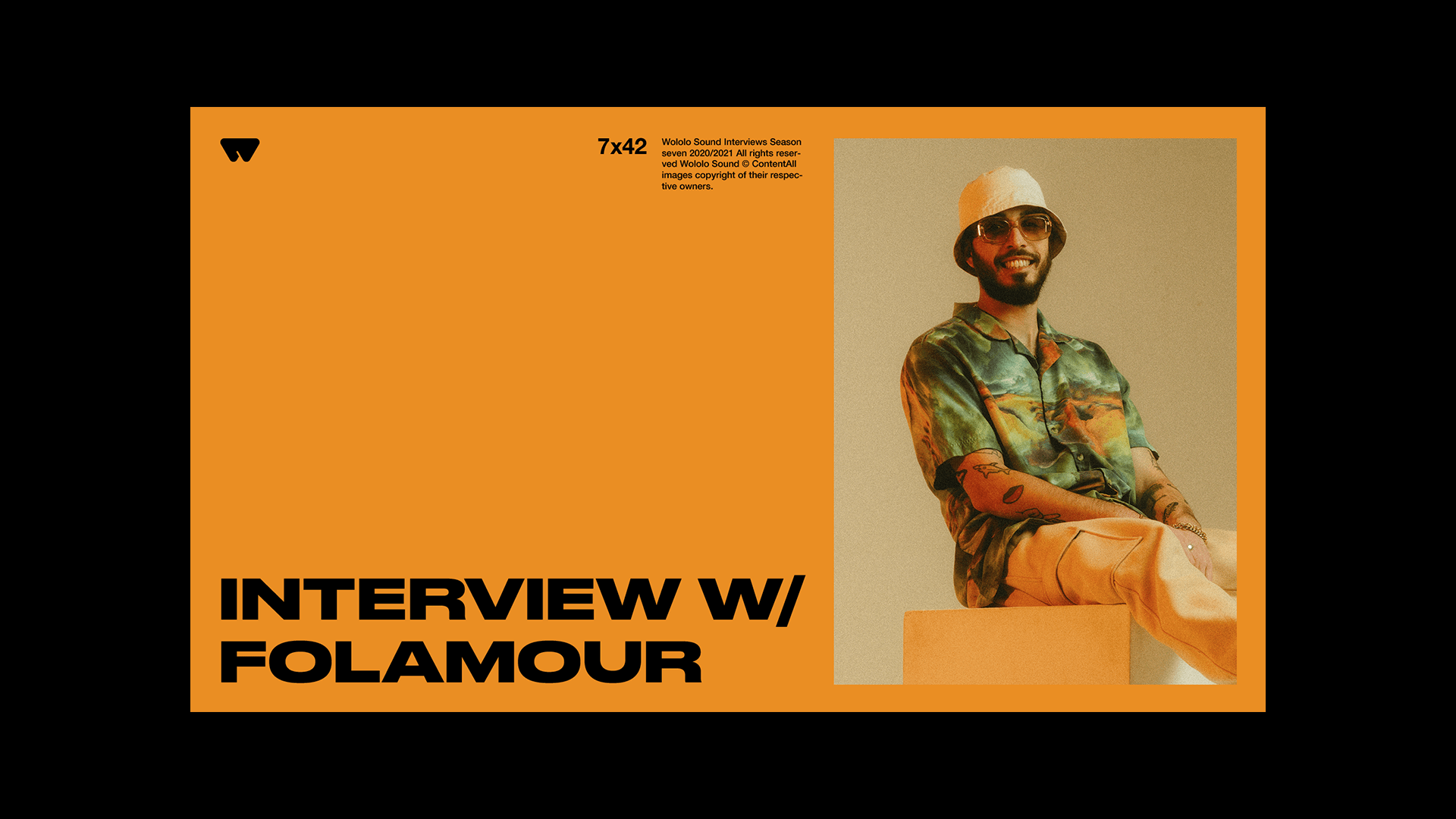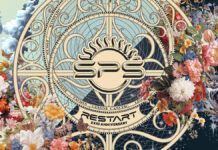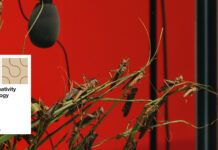En la penúltima entrevista de nuestra temporada nos sentamos a charlar con el francés Bruno Boumendil más conocido por su alias Folamour. Se trata de uno de los artistas en activo que más representa el sonido disco y funky, que se entremezcla con su influencia jazz, house o hip-hop. Recientemente ha estrenado ‘The Journey’, su tercer álbum de estudio, y le hemos preguntado por este y por más situaciones referentes a su carrera. Vamos con las preguntas.
WOLOLO SOUND: ¡Hola Bruno! Es un placer tenerte charlando con nosotros, comencemos hablando un poco de ti. Folamour no es tu nombre, ¿a qué se debe tu alias?
FOLAMOUR: ¡Hola! Viene de la versión francesa de ‘Doctor Strangelove‘ de Kubrick. Cuando empecé este proyecto busqué un nombre y este me pareció ambiguo y poético, me pareció lógico.
WOLOLO SOUND: Hello Bruno! It is our pleasure to have you here chatting with us, so let’s start talking a little bit about yourself. Since Folamour is not your real name, where does your “aka” come from?
FOLAMOUR: Hi! It comes from the French version of ‘Doctor Strangelove‘ by Kubrick. When I started this project I looked for a name and this one seemed ambiguous and poetic, it seemed logical.
WS: En tus producciones podemos ver diversas influencias como el disco, house, funky, jazz, ambient o hip-hop. ¿Cuáles son los artistas que más te han influido? ¿Crees que es esencial que un artista encuentre su propio sonido? ¿Cómo fue tu proceso?
F: Pienso que los artistas que más me han inspirado son siempre los artistas que se liberan de los límites en términos de géneros. Pienso en D’Angelo, Gil Scott-Heron, Radiohead y artistas pop como Oasis o The Cure. Siempre siguen su propia inspiración. Creo que es importante tener tu propio sonido o algo que haga diferente tu música de la de cualquier otro, pero también pienso que sale de forma natural. Cuando empiezas a crear música, prefieres algunos instrumentos, algunos sonidos que encajan mejor con la idea que tienes en mente y lo acabas desarrollando sin siquiera darte cuenta. Hoy no podría decirte exactamente de qué está hecho mi sonido y por qué es diferente de los demas, ¡pero lo es y estoy orgulloso de él!
WS: In your productions we can appreciate several influences such as Disco, House, Funky, Jazz, Ambient or Hip Hop. Which artists have inspired you the most? Do you think that it is essential for each artist to find their own sound? How was your process?
F: I think the artists who inspired me the most are always artists free of limits in terms of genre. I think of D’Angelo, Gil Scott-Heron, Radiohead and pop artists such as Oasis or The Cure. They always follow their own inspiration. I think it is important to have your own sound or something that makes your music different from any other but I also think it comes naturally. When you start creating music, there are some instruments you prefer, some sounds that fit better with the idea you have in mind and you develop it without even noticing. Today I couldn’t explain exactly what my sound is made of and why it’s different from others but it is and I’m proud of it!
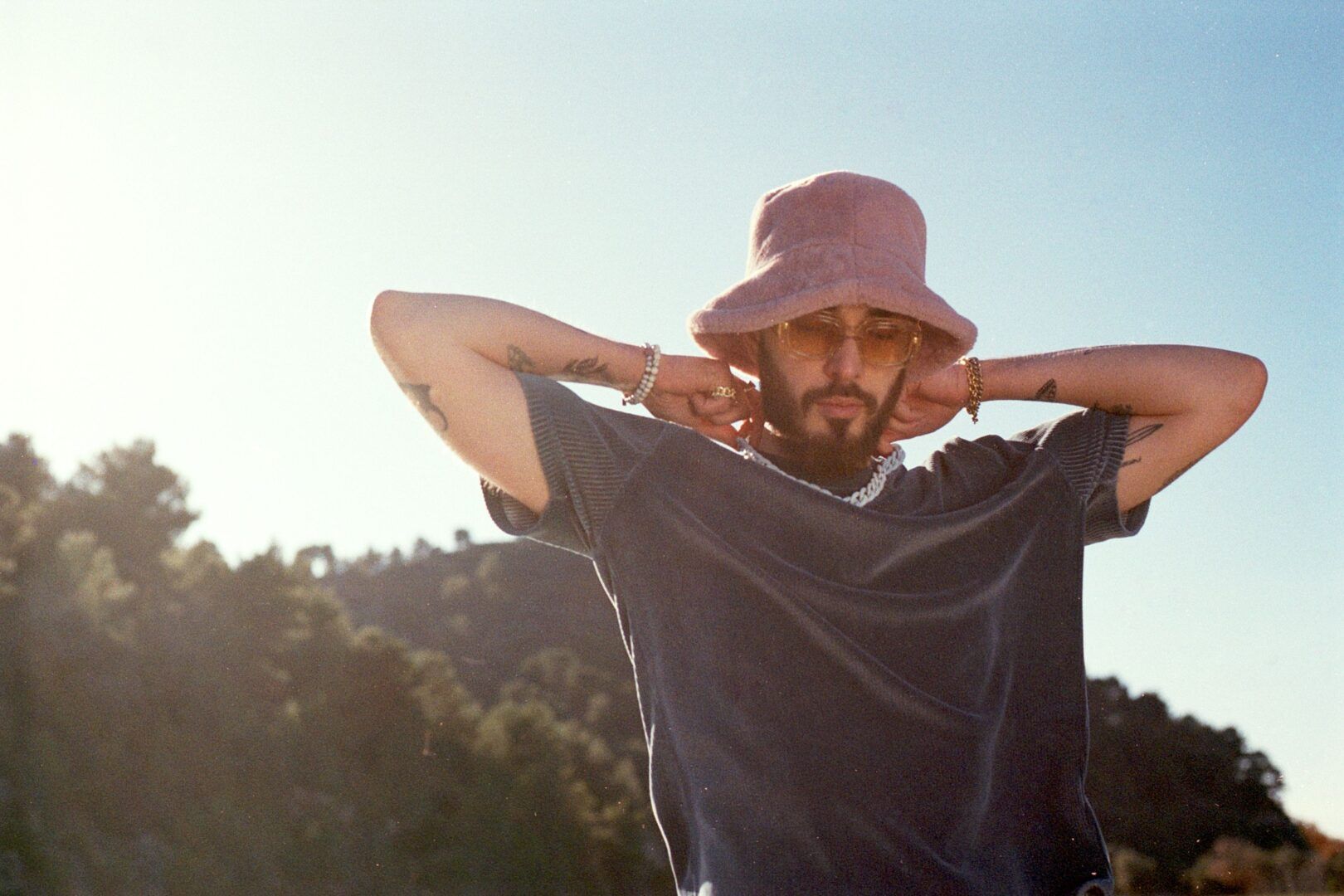
WS: Tus primeros trabajos datan de 2014, un total de 7 años estrenando música. ¿Qué diferencias hay entre el Folamour que empezó en la música y el Folamour actual?
F: Mi habilidad, por supuesto. Cuando empecé, estaba obsesionado con samplear, primero porque siempre me ha encantado la música basada en samples, pero también porque mis habilidades no estaban lo suficientemente desarrolladas como para darme la libertad de hacer lo que tenía en mi mente. Me llevó años lograr lo que he creado para ‘The Journey‘, y aún tengo un largo camino por hacer consiguiendo lo que musicalmente sueño. Además, tengo más confianza en mi música, estoy más orgulloso que nunca de mí.
WS: Your first tracks date from 2014, a total of 7 years releasing music. What are the differences between the Folamour that begun in music and today’s Folamour?
F: The skills for sure. When I started, I was obsessed with sampling, first because I’ve always loved sample-based music but also because my skills weren’t developed enough to give me the freedom to do what I had in mind. It took me years to achieve what I’ve created for «The Journey» and I still have a long way to go before achieving what I’m dreaming of musically. I’m also more confident in my music, I’m prouder of myself now than ever before.
WS: En 2017 te mudaste a Londres, ¿qué tal fue el cambio? ¿Influyó esto en tu música?
F: No creo que haya cambiado mi música pero seguro que ha cambiado las temáticas en mis canciones. Vivir en Londres durante un tiempo me inspiró mucho sobre la soledad y la dureza de la vida en las grandes ciudades y todo lo que conlleva. Muchas de las canciones del álbum están relacionadas con esos sentimientos.
WS: In 2017 you moved to London, how was the change? Did that make a difference in your music?
F: I don’t think it changed my music but it surely changed the topics in my songs. Living in London for a moment inspired me a lot about the loneliness and toughness of big cities’ life and everything coming with them. Many songs on the album are directly related to these feelings.
WS: Tu nuevo álbum ha visto la luz el 11 de junio, perfecto para la época veraniega. Observamos un gran componente melódico, uso de sintetizadores, gran carga instrumental apostando por los ritmos rotos, presentando un aura alegre y optimista que transcurre por los 12 temas que componen ‘The Journey’ . ¿En qué te has inspirado para crear este álbum? ¿Cómo ha sido el proceso creativo?
F: No tuve ninguna inspiración en concreto más allá de mi vida durante los últimos años, gran parte de ella en la carretera constantemente y otra parte en casa, en el campo durante los confinamientos. El proceso creativo fue representar un momento o una emoción en cada canción y crear la historia a través de un género en concreto. Dejé mi ordenador para usar instrumentos reales muchó más que antes, escribí letras, melodías, cuerdas, vientos… Fue todo un viaje en sí.
WS: Your new album has seen the light on the 11th of June, right on time for the summer season. We observe a big melodic component, use of synths, big instrumentals going breakbeat, introducing a charming and optimistic aura through the 12 tracks that make ‘The Journey’. ¿What was the inspiration behind this LP? ¿How has the creative process been?
F: I didn’t have any specific inspiration besides my life during the last few years, a big part of it on the road constantly and another part at home, in the countryside during lockdowns. The creative process was to represent a moment or an emotion through each song and to create the story through a specific genre. I left my computer to use real instruments much more than before, I wrote lyrics, melodies, strings, brasses,… It was a whole journey in itself.
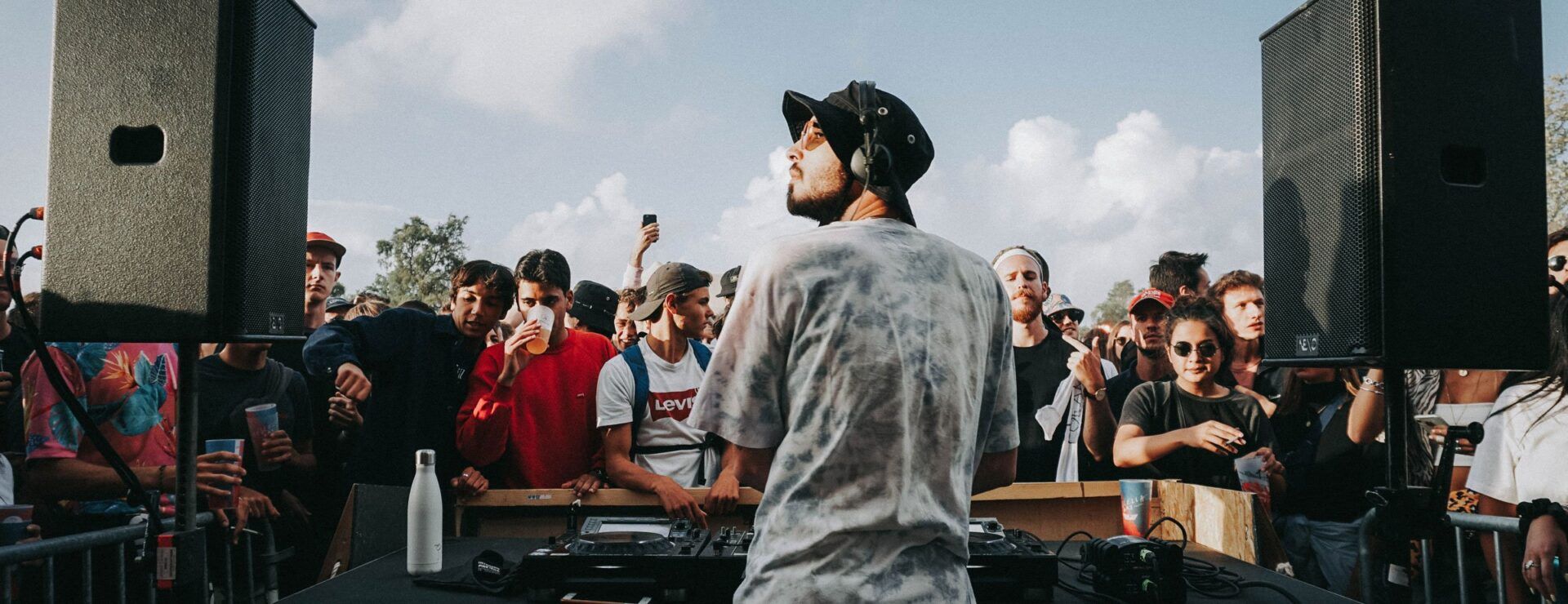
WS: Sobre este álbum, como pasó con ‘Ordinary Drugs’, explicaste que te has ido alejando de samples y computadoras para concentrarte en escribir textos, grabar cuerdas, vientos metales, batería, voz…¿A qué se debe este cambio a la hora de hacer música?
F: Pone a tu idea en el centro de todo. Cuando usas ordenadores y samples, debes coger el material y convertirlo en tuyo y por eso estás siempre limitado por los samples. El mensaje puede perderse en el proceso. Cuando escribo canciones ahora, puedo acercarme mucho a mi verdad interior y usar las melodías correctas con las palabras adecuadas para que el mensaje sea más claro que nunca, y me encanta.
WS: About this album, as it happened with ‘Ordinary Drugs’, you explained that you’ve been leaving behind samples and computers to focus on writing, recording strings, metal horns, drums, voice,… ¿What does this change of priorities come from?
F: It makes your idea at the center of everything. When you use computers and samples, you have to take the material and to turn it into yours so you’re always limited by the samples. The message can get lost in the process. When I’m writing songs now, I can get really close to my inner truth and use the right melodies with the right words so the message is clearer than ever before and I love this.
WS: Vuelves a tu sello FHUO, el cual nació en 2016, para estrenar tu nuevo álbum. ¿Con qué percepción nació el sello? ¿Te encargas tú de elegir los artistas que aparecen en él? ¿Cuál es su situación actual?
F: La idea de crear FHUO era para echar una mano a todos los buenos artistas que tengo en mi vida y que a veces tienen dificultades para encontrar sellos en los que lanzar su música. A veces porque no es el sonido de moda o porque es poco esto, o demasiado aquello. Quería ser capaz de ayudarles a crear obras bonitas, de intentar empujarles al frente de la gente a la que puede gustar su música. Volví recientemente con el último EP de mi amigo Parviz y es una joya. Estoy contento de no tener ninguna presión, no necesito lanzar cosas, podría esperar dos años si fuera necesario, pero ahora tenemos unas cuantas en camino, ¡y tengo muchas ganas de revelarlo!
WS: You are going back to your label FHUO, which was born in 2016, to release your new album. What was the purpose of creating the label? Are you in charge of choosing which artists release there? What is the actual situation of it?
F: The idea about creating FHUO was to give a hand to all the great artists I have in my life who struggle sometimes to find labels to release their music. Sometimes because it’s not the hype sound or because it’s not enough this, too much that. I wanted to be able to help them to create beautiful records, to try to push them in front of the people who can like their music. I got back to it recently with the latest EP from my friend Parviz and it’s a gem. I’m happy we don’t have any pressure, I don’t need to release things so I can wait two years if necessary but now we have a few coming that I can’t wait to reveal!
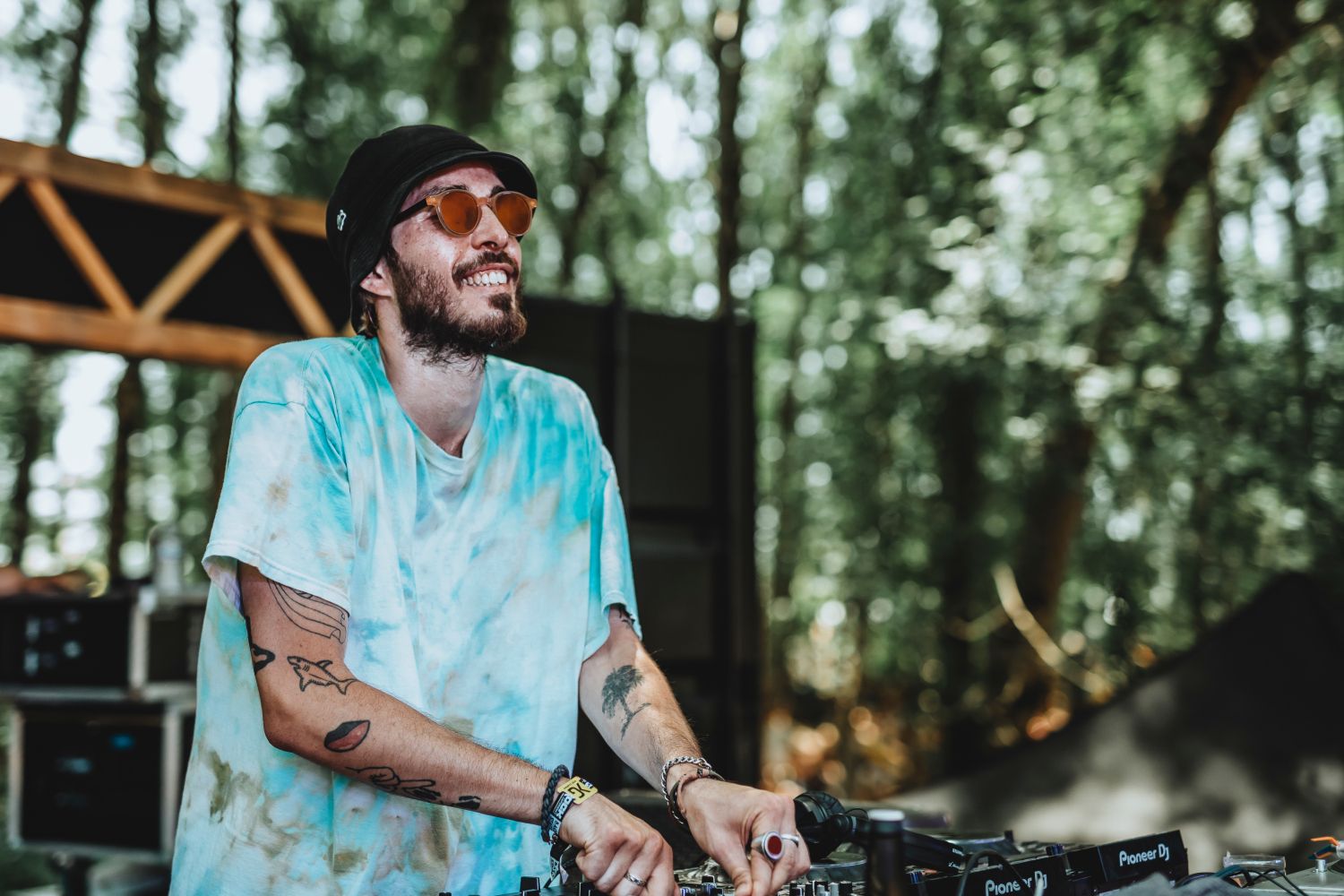
WS: En 2014 junto a Ethyene, Kaffe Crème & Saint Paul estrenaste Moonrise Hill Material, tu otro sello, el cual lleva inactivo dos años. ¿Qué ha pasado con la marca? ¿Volverá?
F: No lo sé, decidí abandonar el sello hace unos años porque no estaba de acuedo con su forma de hacer las cosas y decidí darles el sello que empecé, ¡y crear otro nuevo que acabó siendo FHUO! Fue una decisión acertada para mí, pero no tengo ni idea de si el sello sigue en funcionamiento.
WS: In 2014, together with Ethyene, Kaffe Crème & Saint Paul you started Moonrise Hill Material, your other label, which hasn’t been active for the past couple of years. What has happened to it? Will it come back?
F: I don’t know, I decided to leave the label a few years ago cause I wasn’t agreeing with their way of doing things and I decided to give them the label I started and to start a new one which turned out to be FHUO! It was a good decision for me but I have no idea if the label is still running.
WS: Queremos saber ahora tu opinión sobre tu país, ya que Francia siempre ha destacado por su cultura musical y su gran aporte a la escena, ¿cómo ves la escena actual de tu país? ¿Qué artistas nos recomiendas?
F: Francia siempre ha sido buena en cuanto a música, electrónica o no, hay mucha energía ahí fuera, me encanta. También es difícil para los artistas franceses porque no son verdaderamente aceptados en los grandes medios de música electrónica, y por ello pueden estar apurados durante años hasta tener un foco sobre ellos a pesar de la buena música y el talento. Puedo recomendar a muchos, pero diré Parviz, Hugo LX, Leo Pol, Saint DX, Cotonete, Patchworks, Guts, etc…
WS: We want to know your opinion about your country since France has always been highlighted for its big contribution to the scene. How do you see the actual scene of your country? What artists can you recommend to us?
F: France has always been great music-wise, electronic music or not, there is so much energy out there, I love it. It’s also hard for French artists because they’re not truly accepted in the big electronic music medias so they can struggle for years to have a light put on them despite great music and talent. I can recommend so many but I’d say Parviz, Hugo LX, Leo Pol, Saint DX, Cotonete, Patchworks, Guts, etc…
WS: Sin duda alguna tu momento más viral fue en tu set para Boiler Room x FLY Open Air 2019 al pinchar el ‘Gimme Gimme Gimme’ de ABBA. ¿Cómo te sientes al ver que ese momento, y por ende ese set, ha sonado alrededor del mundo? ¿Ha significado un punto de inflexión en tu carrera ese vídeo?
F: Es difícil de saber pero seguramente tuvo algún impacto, sí. No creo que fuera un punto de inflexión en mi carrera porque todo me pareció orgánico por mi parte. He lanzado tres álbumes y una docena de EPs, y cada uno de ellos me ha llevado un poco más hacia el foco. Hice como 350 bolos en los últimos cuatro años, cada vez más gente se unía a la familia y me gusta de esa manera. Cuando pienso en el momento ABBA, me encanta recordarlo como fue allí y aprecio el cariño que la gente le ha dado, pero por mi parte, ¡fue un momento de muchos! He tenido momentos como ese en la mayoría de mis bolos que hice y me encantan igual.
WS: Last but not least, we must ask you about this: without a doubt, your most viral moment was during your Boiler Room x FLY Open Air 2019 set when you played ‘Gimme! Gimme! Gimme!’ by ABBA. How do you feel to see that that moment, and for instance that set, has been played around the world? Has that video become a turning point in your career?
F: It’s hard to know but surely it had some impact, yes. I don’t think I had a turning point in my career cause everything felt organic on my side. I released 3 albums and a dozen of EPs and each of them pushed me a bit more in the light. I did something like 350 gigs in the last 4 years, every time some people were joining the fam and I like it like that. When thinking about the ABBA moment, I love to remember how it was there and I appreciate the love people have for it but on my side, it was a moment amongst many! I had moments like that in most gigs I did and I love them as much.
WS: Y para acabar, vamos con algunas preguntas cortas:
Comida favorita: Pasta
¿Club o festival?: Cualquiera, ¡siempre que esté lleno de mi gente!
¿Álbum favorito?: Complicado elegir uno pero probablemente ‘Morning Glory’ de Oasis
¿Una canción no electrónica?: Hamza – 1994
¿Con qué artista pasarías un día en el estudio?: Jordan Rakei
¿Palabra favorita en español?: Enamorado
WS: Some short questions before we go:
Favorite food: Pasta
Club or festival? Any, as long as it’s packed with my people!
Favorite album? Hard to say one but probably ‘Morning Glory’ by Oasis
A non-Electronic song:? Hamza – 1994
An artist to spend a day in the studio with: Jordan Rakei
Favorite Spanish word: Enamorado


